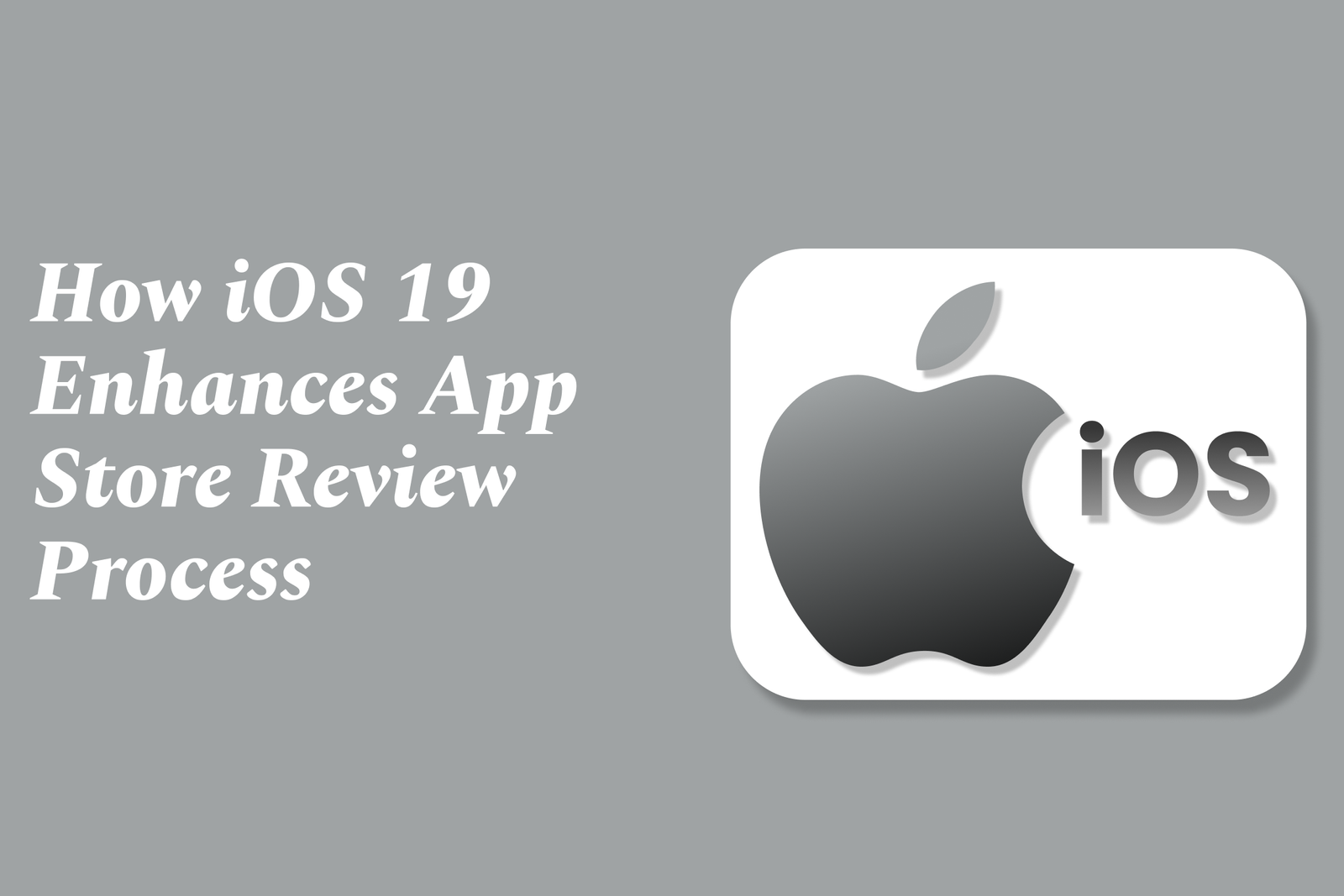How iOS 19 Enhances App Store Review Process
iOS 19 enhances the App Store review process by introducing more detailed age ratings, an expanded content questionnaire for developers, and allowing higher minimum age settings, ensuring apps are accurately rated and safer for users across all Apple platforms.
How iOS 19 Enhances App Store Review Process
1 ) Introduction to the Updated App Store Review System
Apple has revamped its App Store review process with the introduction of iOS 19, focusing on improving the safety, trust, and appropriateness of apps for different age groups. This update aligns with Apple's ongoing commitment to maintain a secure and family friendly ecosystem.
2 ) More Granular Age Ratings
The new system introduces more detailed age categorizations beyond the previous 4+ and 9+ ratings. Added age ratings now include 13+, 16+, and 18+, providing developers and users with clearer guidance regarding app suitability. Age ratings are also tailored per country or region to reflect local standards.
3 ) Expanded Rating Questionnaire
Developers are now required to answer an enhanced set of questions aimed at identifying sensitive content. The updated questionnaire covers crucial topics such as:
In app controls and capabilities
Medical and wellness information
Presence of violent themes
These questions assist Apple in calculating a precise age rating and ensure developers deliver content appropriate for the intended audience.
4 ) Ability to Set a Higher Minimum User Age
If an app's internal policy requires a user age higher than Apple's assigned rating, developers can now set this elevated age restriction. This flexibility helps apps enforce their own minimum age requirements effectively.
5 ) Automatic Rating Updates with Upcoming OS Versions
All existing apps and games have had their age ratings automatically adjusted to conform to the new system. These updated ratings are reflected on devices running beta versions of iOS 26, iPadOS 26, macOS Tahoe 26, tvOS 26, visionOS 26, and watchOS 26, showcasing Apple's commitment to consistent enforcement across platforms.
6 ) Conclusion
With iOS 19, Apple provides more precise tools and enhanced transparency in the App Store review process, enabling the delivery of age appropriate content and improving user trust. Developers benefit from clearer guidelines and the ability to specify stricter age policies, fostering a safer and more tailored app ecosystem.
https://justacademy.in/news-detail/flutter-open-source-tools-roundup
https://justacademy.in/news-detail/flutter’s-growing-ecosystem:-libraries,-tools-&-trends
https://justacademy.in/news-detail/ios-19-and-accessibility:-voiceover-enhancements
https://justacademy.in/news-detail/android-system-ui-refresh-news
https://justacademy.in/news-detail/flutter-adds-ai-toolkit:-what-it-means-for-developers
Related Posts
Java supports GDPR and data privacy by enabling secure data handling through encryption, controlled access, and precise data management. It allows developers to minimize PII exposure, ensure data confidentiality, and design workflows that comply with data protection regulations effectively.
Java code quality tools have evolved to include advanced static analysis, integrated security checks, and AI-powered code reviews. These updates help developers detect bugs, enforce coding standards, and enhance security, streamlining the development process and improving overall code reliability.
Java remains a cornerstone in big tech companies, evolving with modern features like records, pattern matching, and virtual threads. Its robust ecosystem, enhanced performance, and growing AI integrations keep it vital for both legacy systems and innovative new projects.
Java and CI/CD pipeline optimizations streamline Java application development by automating builds, tests, and deployments. They improve efficiency through parallelization, caching, and secure secrets management, enabling faster feedback loops and more reliable, scalable software delivery.
Java supports modern cryptography standards through its flexible Java Cryptography Architecture (JCA), enabling integration of advanced algorithms like AES, EdDSA, and post-quantum tools. Libraries like Bouncy Castle offer FIPS-certified, hardware-accelerated implementations for secure development.
Java 23 enhances record patterns by enabling concise, direct destructuring of record components within pattern matching, simplifying type checks and data extraction. This improvement boosts code readability and expressiveness by reducing boilerplate in handling immutable data classes.
Java remains a top choice for mobile app backends, powering scalable, secure, and high-performance server-side solutions. Latest trends include cloud-native microservices, reactive programming, and enhanced JVM optimizations, enabling efficient, flexible, and robust mobile backend development.
Java SE 24 and LTS Java SE 21 offer enhanced features and performance, while Apache Spark 4.0.0 introduces Scala 2.13 support and advanced ML and SQL capabilities. Together, they empower developers to build scalable, high-performance data applications with modern tools.
JUnit 5 modernizes Java testing with a modular architecture, improved assertions, and seamless Java 8+ support. Beyond JUnit, tools like Mockito and AssertJ enhance mocking and assertions, creating a powerful, flexible ecosystem for writing clean, efficient Java unit tests.
Java plays a pivotal role in cloud automation tools by providing a robust, platform-independent language used to build scalable automation frameworks like Jenkins and Selenium, enabling efficient CI/CD pipelines, testing, and orchestration across diverse cloud environments.










